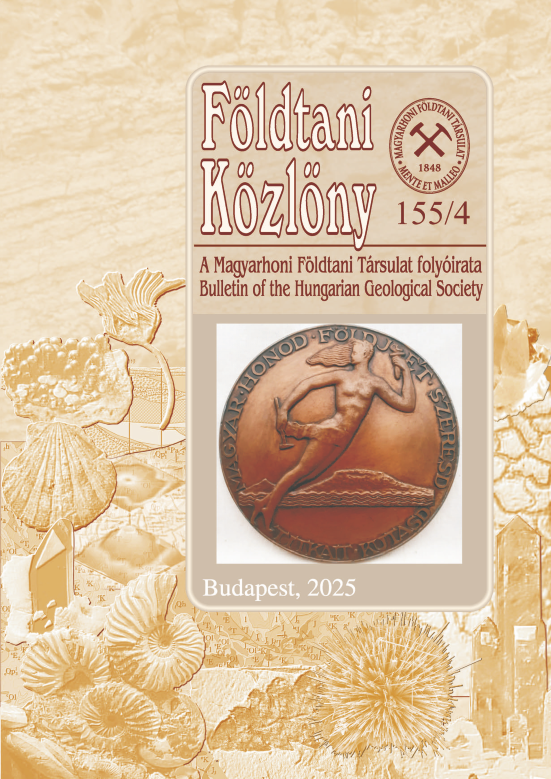Selections of regional geochemical research in Hungary — historical review
Abstract
Geochemical surveys in Hungary for a long time aimed to help mineral exploration. It was found that instead of using methods tested elsewhere, it is more effective to develop own methods best matching the specific research objectives. In the preliminary and exploratory research phase the study of the dispersion train, while in case of detailed explorations, the study of the dispersion halos proved to be more effective. The background (so-called baseline values) has been determined since the beginning of the 1990s, both separately and in the frame of Pan-European programs. On the basis of soil-forming sediments, four geochemical regions have been distinguished; the differences and possible causes have been determined, along with the expected values of the most important toxic and nutrient elements. High-density surveys
(ore mineral & agrochemical research programs) were used to determine the areal representativity of soil samples. Our current research task is to determine the variability of soil samples for each geochemical region.











